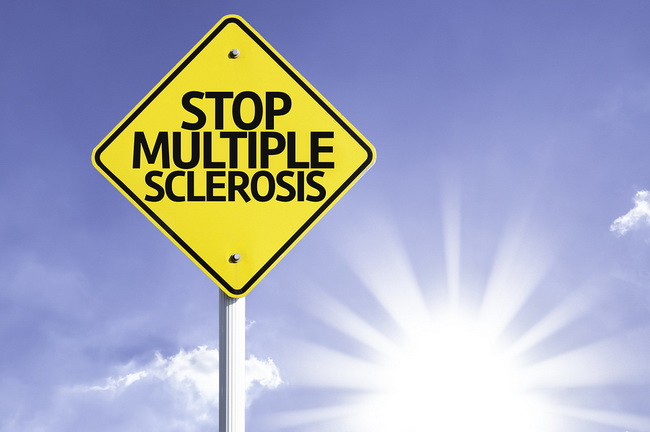- Make It Yourself Lavender Heart-Shaped Bath Bombs!
- 20 Things You Never Knew About “Down There”
- 12 Best Foods For Those Suffering From Arthritis Pain
- 12 Personal Hygiene Mistakes Almost Everyone Makes (Mom Never Told You About #4!)
- 15 Medicinal Plants And Herbs From The Cherokee People
- 12 Mind-Blowing Benefits Of Drinking Coconut Water During Pregnancy
- 12 Outstanding Winter Foods That Won’t Fatten You Up Like A Christmas Turkey
10 Things You Should Know About MS

Photo credit: bigstock.com
If you or someone you love has multiple sclerosis, you might think that you know an awful lot about the subject. You have probably read everything you can get your hands on and talked to friends and doctors, and chances are very good that you even belong to a support group of some kind, where people share all kinds of information.
When it comes to any type of disease, it’s best to gather as much information as possible, and we have compiled some information that it appears very few people know. As of today, there are more than 2.3 million people living with MS with no cure in sight and only a handful of treatments. Some work for some people, but a great many do not work for many people.
Here are 10 things that you should know about MS but probably don’t.
1. There Are 4 Types Of MS; However….
There are four types of disease courses in MS but most people only exhibit symptoms individual to them. The four types are:
- PPMS – primary-progressive MS
- SPMS – secondary-progressive MS
- RRMS – relapsing-remitting MS
- PRMS – progressive-relapsing MS
With each type of MS there are wide degrees of severity. One person can be highly functioning with minimal symptoms while another person with the same type can be severely disabled. In fact, one person can go to work most days and have few symptoms while someone else is disabled enough to need a caretaker, even though both suffer from the same course, or type, of MS. There is no “typical” MS sufferer.
2. Pain And Sleeplessness
Insomnia and pain are common symptoms of MS. Many people think that they are unrelated to their disease. This is so common that more than 50 percent of those afflicted with MS say that they suffer from insomnia and pain, which only make their other symptoms worse. Pain and insomnia increase the severity of symptoms, and as is the case with headaches, only become more severe and more frequent. The management of MS symptoms is endless. Try chamomile tea for insomnia and ginger or Devil’s Claw for pain management.
3. MS Symptoms Can Come And Go
You might think you are an expert on your own MS, but just when you think you have it down, it changes on you. And it will continue to change over your lifetime. You might have a loss of bladder control for months when suddenly your control is restored, but you lose short term memory so badly that you can’t remember who you just had over for coffee. You can walk unassisted for months but one morning, you discover that you suddenly need your walker. Unfortunately, many people see something as no longer needing their walker as a sign that they are “getting better.” In reality, the truth of the matter is that their bodies are simply changing. These changing symptoms and their severity makes MS very hard to diagnose and even harder to predict the future and what will be needed.
Continue to Page 2

Photo credit: bigstock.com
4. Watch What You Eat
MS absolutely changes what you can and should eat. Although a healthy diet helps everyone, this is especially true for those who suffer from MS. Because most people with MS become super sensitive to fats, sodium, caffeine, preservatives, and other unhealthy foods and additives, their diets tend to go to extremes. Too many MS sufferers listen to chit-chat on the Internet about eating this or not eating that in order to ease their symptoms, and this is not always in their best interest. Avoiding all dairy or gluten or any other food simply because someone says it worked for them is no guarantee that it will work for you or that it is even safe for you.
A prime example is one discussion on a particular MS website where the subject was caffeine. Although some people found that caffeine or caffeinated drinks such as coffee made their symptoms much worse, there were quite a few people who found that drinking a few cups of coffee over the course of a day helped relieve their symptoms. Food affects everyone on an individual basis, and there is no “perfect” diet for MS. There is only the perfect diet for you. Eat as healthy and naturally as you can and forget about the fads.
5. Get Your Vitamin D On
Your body must have vitamin D to fight osteoporosis, a common complication of this MS, as well as absorb calcium and to reduce your symptoms. Too many people with MS live their lives inside the house and only see sunlight through a window. Studies show that most people with MS are deficient in vitamin D. If you truly can’t get out in the sun, then you will need vitamin D and vitamin K supplements. Speak to your doctor about the right dosage for you. In the March 2014 journal JAMA Neurology, a study was published showing that for those in the early stages of MS, those who had higher levels of vitamin D in their blood had slower progression of this disease over the next five years than those who had low vitamin D levels.
6. Think Cranberry
Drinking cranberry juice or taking cranberry extract supplements can help prevent those oh-so-common urinary tract infections that seem to plague women with MS. Cranberries contain a compound that prevents bacteria from sticking to the walls of the urinary tract, so it is flushed out of the body. This is more important than just avoiding a painful UTI episode. For MS sufferers, a UTI can worsen underlying neurological problems, according to doctors at the Colorado Neurological Institute. If you have, for example, mild leg weakness, a UTI can trigger significant leg weakness in a matter of days. Of course, if you already have a UTI, cranberry juice won’t help you. Take your course of antibiotics, and then start drinking pure cranberry juice or taking extracts to prevent another episode.
7. Consider Ginkgo
There have been recent studies which show that ginkgo biloba can help with those feelings of fatigue. However, you absolutely must speak to your doctor before trying ginkgo, especially if you are taking other medications such as blood thinners. Gingko can cause serious drug interactions and thins your blood, so you should review all of your medications with your doctor and talk to them to see if adding ginkgo biloba to your life is right for you.
Continue to Page 3

Photo credit: bigstock.com
8. Chill
One symptom that almost all MS sufferers find is that heat makes things worse, and staying cool calms things down. Keep in mind all the simple strategies that are known to work to keep you cool and comfortable: Drinking cold beverages; wearing loose, comfortable clothing with natural fibers; and staying inside on hot days, in front of the fan or using the air conditioning if necessary. If you want to take things a step further, try some of the new garments now available designed to keep you cool. The Multiple Sclerosis Association even provides cooling vests to those who qualify for their program, so you might want to check into that. Chilling out is known to improve vision, walking, even thinking and concentration levels.
SEE ALSO: Top 10 Ways You Are Killing Your Brain (#5 – Who Knew?!)
9. Try Acupuncture
Acupuncture is very low risk and can be very helpful for many when it comes to reliving pain that does not respond well to typical pain relievers. Be careful, however, of those Chinese herbal supplements most acupuncturists will offer you after an acupuncture session. Some herbs, such as astragalus and Asian ginseng can intensely activate the immune system, making your MS symptoms worse or interfering with medications. Write down the names of these supplements, and then speak to your doctor about whether or not these are right for you and your situation. You can always go back and buy them should your doctor give you the green light.
10. There is NO CURE
Although hopeful research and experimental treatments get all the attention, you never see the people who try some of these extreme measures and then are disappointed when the program doesn’t work. Of course, this doesn’t mean we should not try to find a cure, but too many people jump on anything and everything they hear about without consulting their doctor. They have high expectations even though the drug, food, or supplement has not been thoroughly investigated first. If you are lucky, you symptoms will “lighten up” for a long period of time. If you are not, then you must find ways to minimize your symptoms as much as possible. Don’t believe every “miracle” cure that you read about online. When there is a cure, believe us, it will be announced all over the world.
If you found this article informative and helpful, please pass it on. Awareness and knowledge is one step forward on the road to a cure.
References:
































